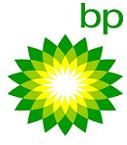BP
BP draws suitors for Russian stake
 BP said it is pursuing the potential sale of its stake in a lucrative but conflict-plagued Russian joint venture after receiving what people familiar with the matter said are expressions of interest from two parties: BP's existing partners and a state-owned energy company in Russia.
BP said it is pursuing the potential sale of its stake in a lucrative but conflict-plagued Russian joint venture after receiving what people familiar with the matter said are expressions of interest from two parties: BP's existing partners and a state-owned energy company in Russia.
BP's 50% stake in TNK-BP Ltd., Russia's no. 3 oil producer, could fetch as much as $25 billion, according to people close to the situation. BP's willingness to consider a sale marks a turnabout for the British company, which has long said it wanted to hold onto its stake. The venture accounts for nearly a third of BP's output and has been a keystone of its global strategy since it was formed in 2003.
A sale to a Russian state company, meanwhile, would be a dramatic step by the Kremlin to consolidate its already-substantial control over the energy sector, potentially creating an oil giant to rival gas monopoly OAO Gazprom.
People close to the situation said BP had received an expression of interest from OAO Rosneftegaz, a state holding company where Igor Sechin, the influential former Kremlin energy czar, recently became chairman. Rosneftegaz's main asset is a 75% stake in oil giant OAO Rosneft. A longtime advocate of state control, Mr. Sechin is seeking to make a global player out of Rosneft, where he is CEO.
The other indication of interest came from the group of Soviet-born billionaires who are already BP's partner in the TNK-BP venture. People close to the situation said the billionaires' holding company, known as AAR, last month sent BP an expression of interest in buying part or all of BP's stake. AAR shareholders have said they think the 50% stake is worth about $25 billion, though the latest offer to BP didn't include a specific valuation figure, according to people close to the situation.
BP warned Friday that there was no guarantee a deal would be completed. Analysts said BP's announcement could also turn out to be an attempt to pressure AAR into selling their stake, most likely to a state company.
The Russian partners said earlier this week that their relationship with BP had broken down and that one side or the other would ultimately have to take control of TNK-BP. Mikhail Fridman, the billionaire who leads the AAR group, stepped down abruptly as TNK-BP's CEO Monday, though he remains chairman.
Details of Rosneftegaz's offer couldn't be learned. Mr. Sechin told reporters in Berlin, where he was on an official visit with President Vladimir Putin, that the company hadn't considered an offer but might do so later.
A year ago, Rosneft and BP were close to a deal to buy out AAR's stake for about $32 billion in cash and stock, but it fell through at the last moment because of differences between Rosneft and AAR.
The failure of that deal helped complete the poisoning of the already-tense relations between BP and the Russian partners over control and strategy at TNK-BP. It also prevented BP from inking a landmark Arctic alliance with Rosneft, which later struck that deal with Exxon Mobil Corp.
Analysts don't expect much foreign interest in BP's stake, given fears by such players of angering the Kremlin by bidding against a Russian state company.
Under their shareholder agreement, each side in TNK-BP has up to 135 days to negotiate a counteroffer in the event the other partner wants to sell its stake to a third party.
BP would consider selling only its entire stake, according to people close to the company. AAR has repeatedly said it would swap some of its TNK-BP shares for stock in BP, but the British company has rejected that.
BP shareholders initially welcomed the news of a possible deal Friday, bidding its share price up nearly 5%, but the stock later gave up some of the gains, closing up 1.8% at 402 pence ($6.19) in a weak overall market.
A sale of its stake "could help BP get back on the front foot, particularly if they can get a good price," said Ivor Pether of Royal London Asset Management, which owns 0.3% of BP according to recent filings. "They would have less production but much greater financial flexibility—I wouldn't object to that."
In addition to its substantial contribution to BP's production and reserves, TNK-BP has been a big source of profits, paying BP $19 billion in dividends since it was formed. People close to the company noted that those payouts could slow in coming years, however, as TNK-BP has to spend more to develop new fields.
A pioneering venture when it was formed, TNK-BP quickly began to stand out for its 50-50 structure between two private entities even as as the Kremlin was moving to assert state control over the oil industry. BP and AAR also skirmished repeatedly over strategy at the venture, with tensions exploding in 2008 and forcing Bob Dudley, then chief executive officer of TNK-BP, to flee Russia amid rising regulatory pressure. Mr. Dudley now is chief executive of BP.
(Published by WSJ - June 1, 2012)